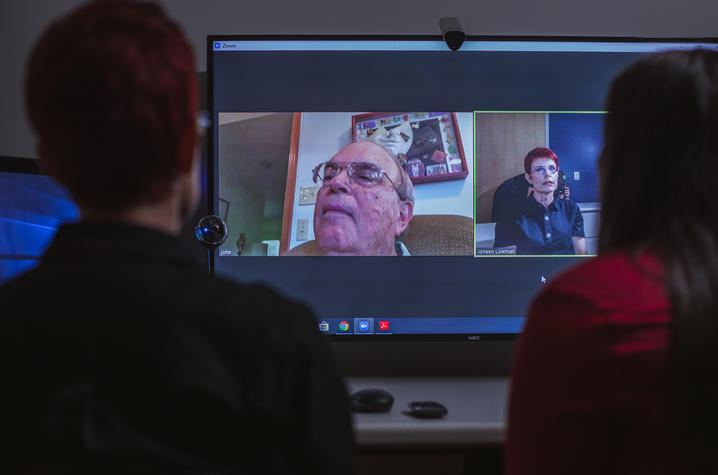COVID-19 Pandemic Spotlights Greater Need for Telehealth Training

LEXINGTON, Ky. (May 11, 2020) – The COVID-19 crisis has caused the majority of health care providers to rapidly deploy telehealth initiatives to prevent disruption in care. Joneen Lowman, Ph.D., associate professor in communication sciences and disorders in the University of Kentucky College of Health Sciences, launched the first telehealth graduate certificate in Kentucky and shares her advice on the importance of telehealth training for all medical professionals.
“This pandemic has emphasized the need for telehealth training and highlighted the questions around quickly teaching providers how to deliver care in this way,” Lowman said. “Providers must understand how to engage in ethical telehealth practice.”
Telehealth isn’t as simple as starting a Zoom call with a patient. Qualifications, consent, and state licensure must be taken into consideration, and practitioners must understand how to ethically provide care and therapy in a digital environment. The proper infrastructure is also required for practices to adopt telehealth as a service and properly protect and secure patient information.
“Once a health care professional decides to utilize telehealth, they must then assess the cost of providing this type of service model.” Lowman said. “Then it becomes a question of will this be a temporary service in light of the current pandemic or a permanent addition to the practice? Different scenarios will demand different levels of investment.”
Another crucial issue practices should be aware of is the technological literacy of both the provider and the patient. “We think that everyone is good at using computers and we don’t give enough consideration to basic tech skills,” Lowman said.
One example is troubleshooting sessions when people are using different operating systems. Solutions for a MAC vs a PC will look quite different. Teaching patients to use and create digital signatures is another small, but significant, area of concern.
“If I don’t know how to properly fix a tech issue, the entire session could fall apart,” Lowman said. “We’re also asking providers to work with people who may have visual or hearing problems. Providers must have intimate knowledge of how accessibility features work.”
As implementation of telehealth practice continues to rise, Lowman said the most important piece of advice she could give to health care professionals is to keep it simple.
“You have to be ready to support your patient,” Lowman said. “Send them handouts for how to troubleshoot common problems and take time to outline your goals for the telehealth session. If you are able to actively engage with the patient, they become an equal partner in their care and become more open to sharing information with you.”
“Remember, the easier the technology is to use, the more likely you are to use it,” she continued. “When a provider is confident in their telehealth abilities, patients will have more trust in the model.”
The Graduate Certificate in Telehealth at the UK College of Health Sciences is comprised of three 3-credit courses (nine total credit hours) offered across three consecutive semesters beginning summer of 2020. Enrollment is open to all students participating in a health care graduate program and to practicing health care professionals seeking to build upon their skill sets.




